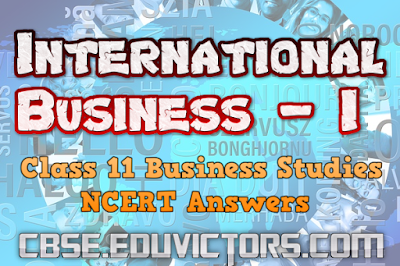Goods and Services Tax (GST)
1. Meaning of Goods and Services Tax (GST)
2. Meaning and Types of GST
(a) CGST – Central Goods and Services Tax
- Collected by the Central Government.
- Applied to transactions taking place within the same state (intra-state supply).
(b) SGST – State Goods and Services Tax
- Collected by the State Government.
- Also charged on intra-state supplies along with CGST.
(c) IGST – Integrated Goods and Services Tax
- Collected by the Central Government on inter-state supplies (between two states).
- Also applicable to imports.
(d) UTGST – Union Territory Goods and Services Tax
- Charged in Union Territories without a legislature (like Chandigarh, Lakshadweep).
- Works similarly to SGST.
3. Features of GST
- Nationwide Application
GST applies nationwide, creating a common market (including Jammu and Kashmir). - Tax on Supply
GST is charged on the supply of goods and services rather than only on manufacturing or sale. - Destination-Based Consumption Tax
The tax revenue goes to the state where the goods or services are consumed. - Applies to Imports
Import of goods and services is treated as an inter-state supply and is subject to IGST along with customs duties. - Dual Structure
Taxes such as CGST, SGST and IGST are levied at rates decided jointly by the Centre and States through the GST Council. - Different Tax Slabs
GST has four main tax rates: - 5%
- 12%
- 18%
- 28%
Essential items are taxed at lower rates, while luxury items may be taxed at higher rates. - 40% Slab (Luxury & Sin Goods): Applies to luxury cars, high-end motorcycles (>350cc), yachts, personal aircraft, and aerated beverages.
- Zero-Rated Exports
Exports and supplies to Special Economic Zones (SEZs) are zero-rated, which encourages international trade. - Easy Online Payment System
Taxpayers can pay GST through Internet banking, debit/credit cards, NEFT or RTGS, making the process faster and more transparent. - Input Tax Credit (ITC)
Businesses can claim tax credits for taxes already paid on purchases, reducing double taxation.
Quick Summary
- GST = One tax replacing many indirect taxes.
- It is a destination-based tax on supply.
- Types of GST: CGST, SGST, IGST and UTGST.
- It simplifies taxation and promotes a unified national market.
See Also
Ch4: Banks and Functions Of Commercial Banks
Ch4: Insurance Services
Ch4: Communication Services
Ch5: Emerging Modes of Business (VSQA)
Ch: International Business-I (NCERT Answers)
Entrepreneurship Development - Questions and Answers



















